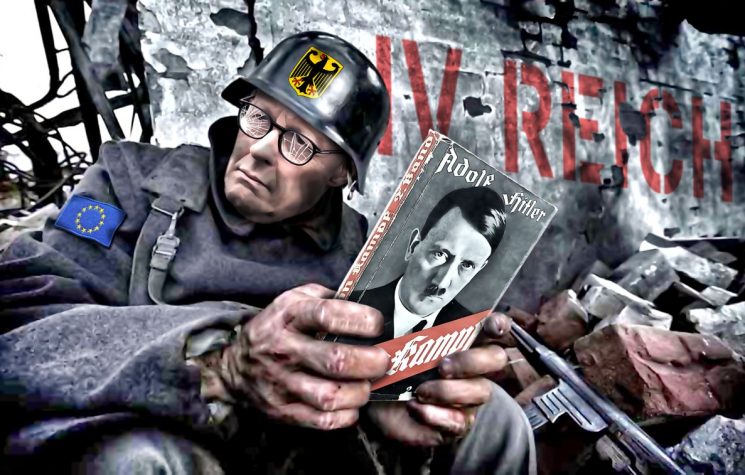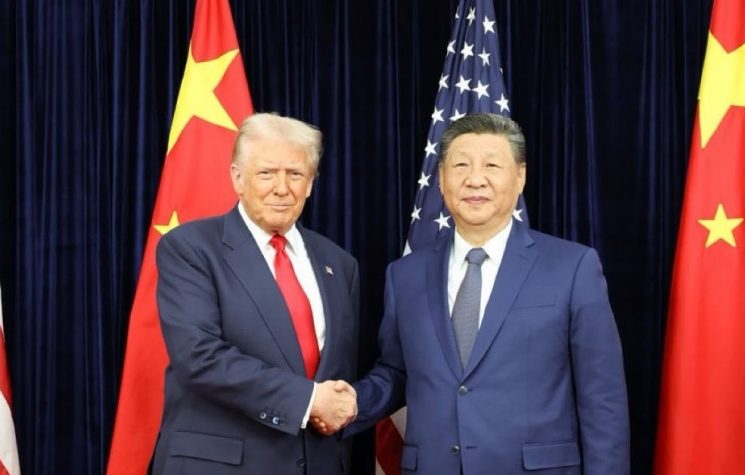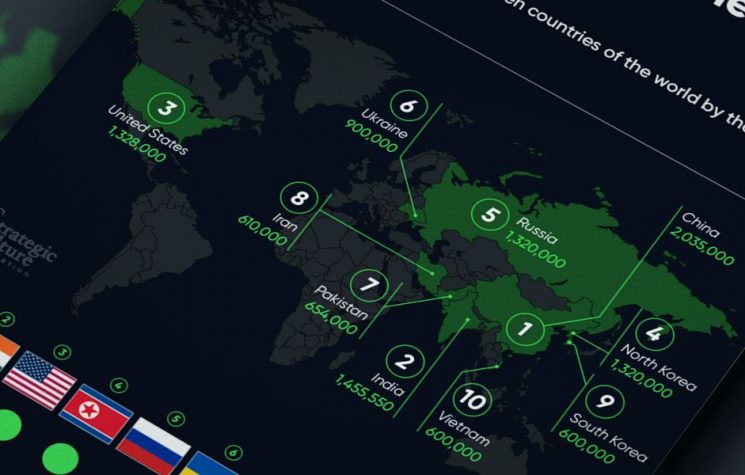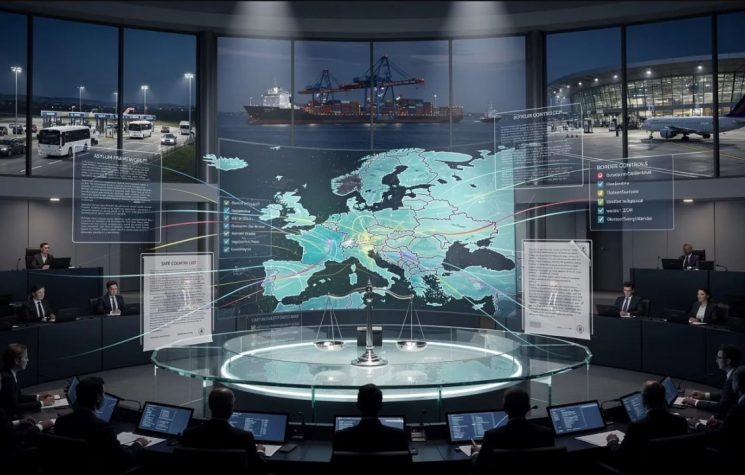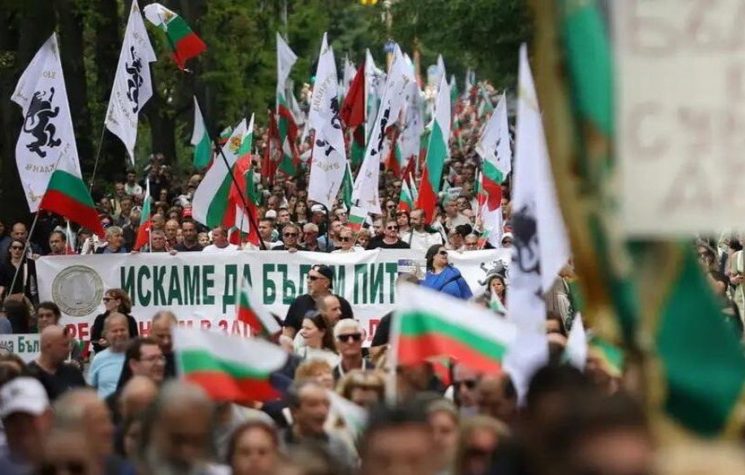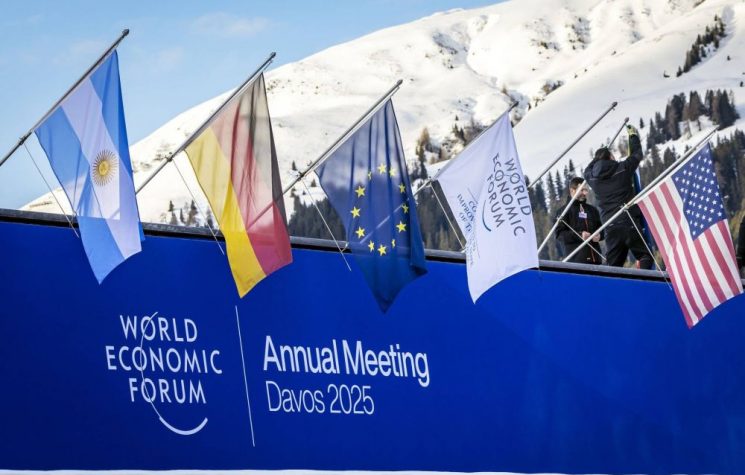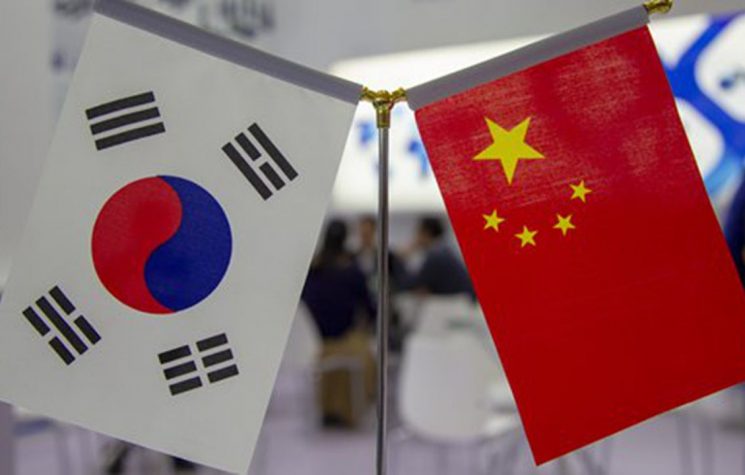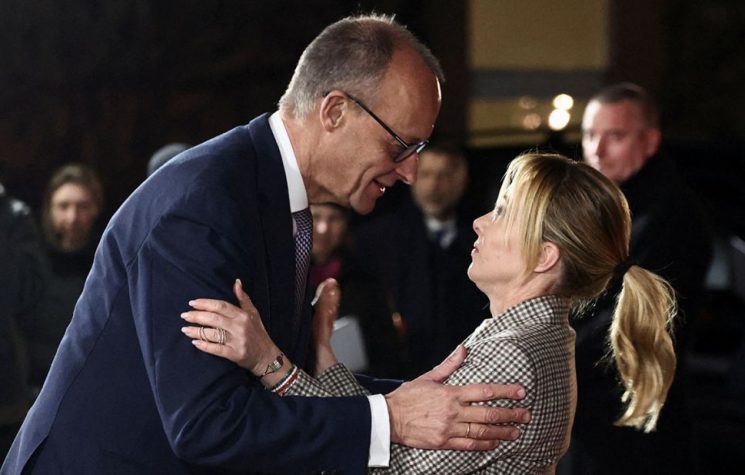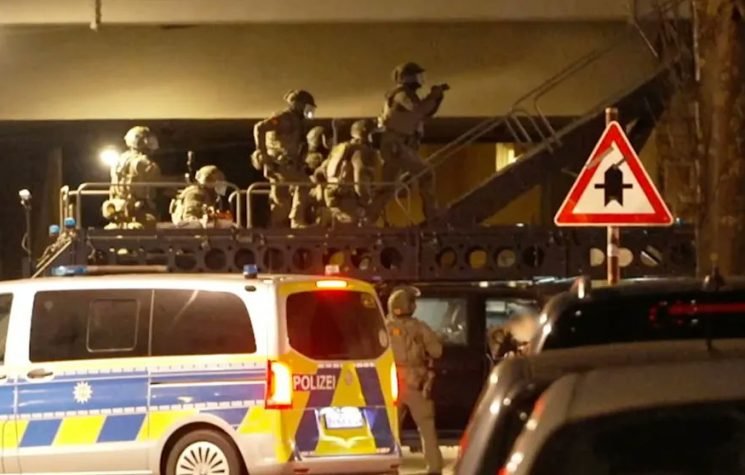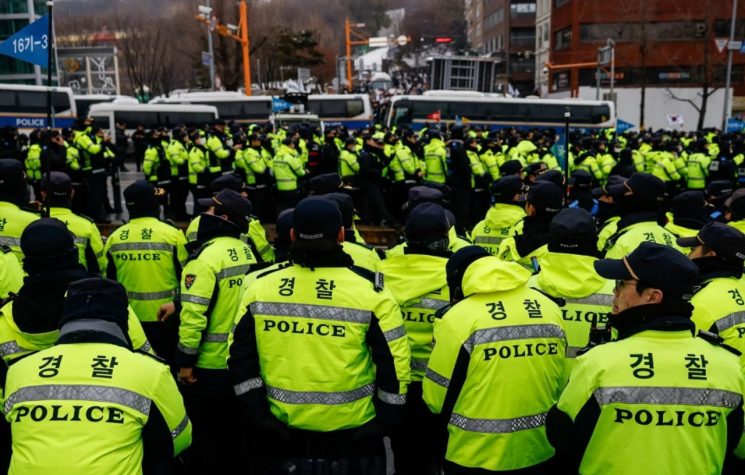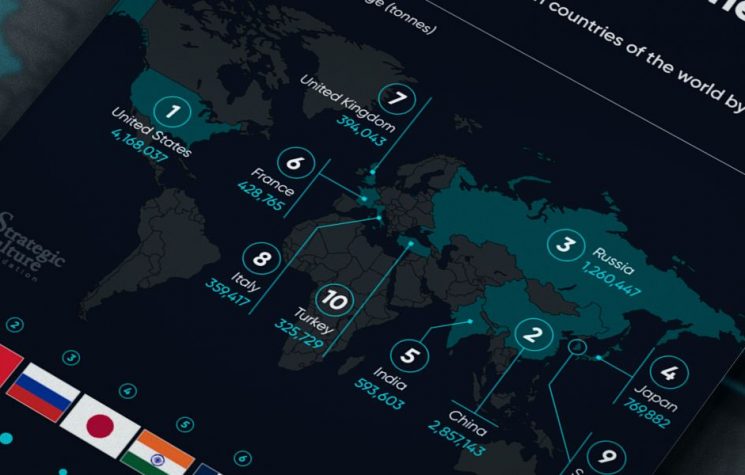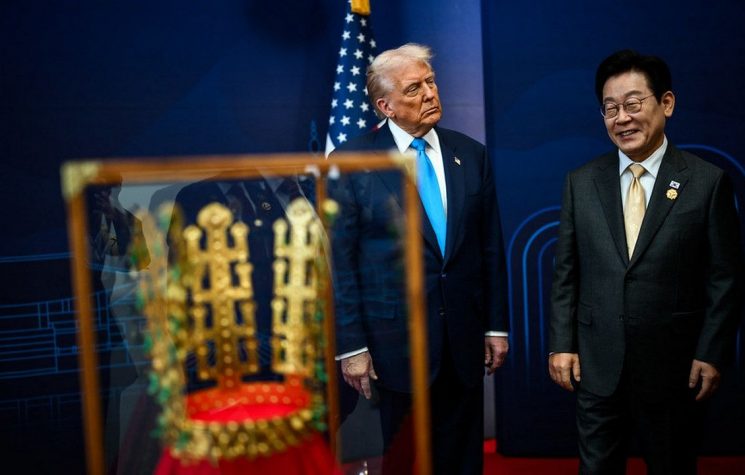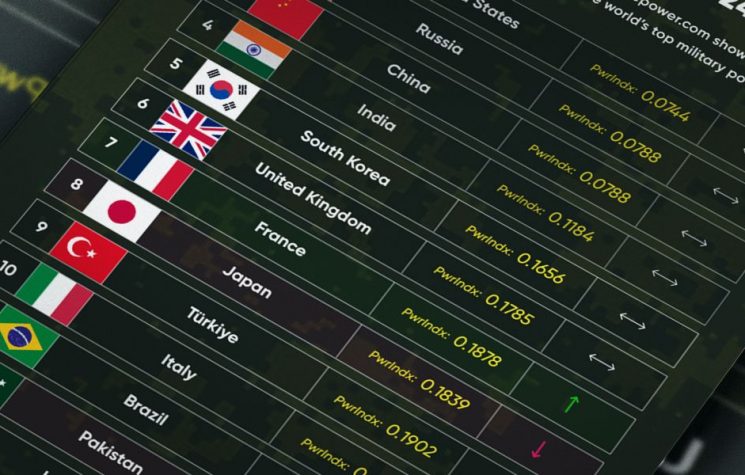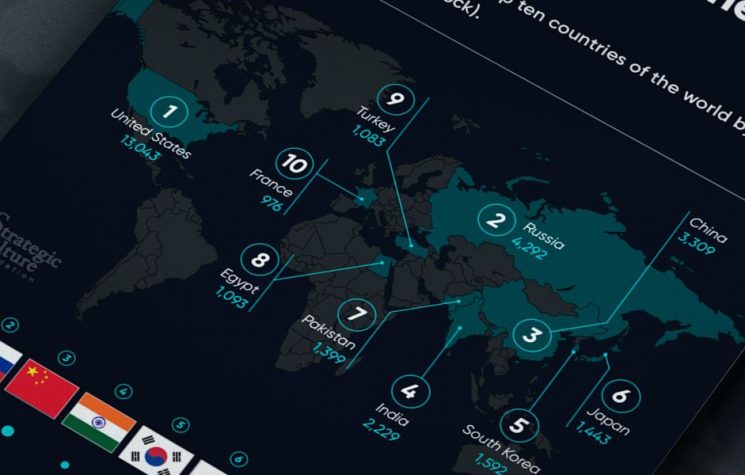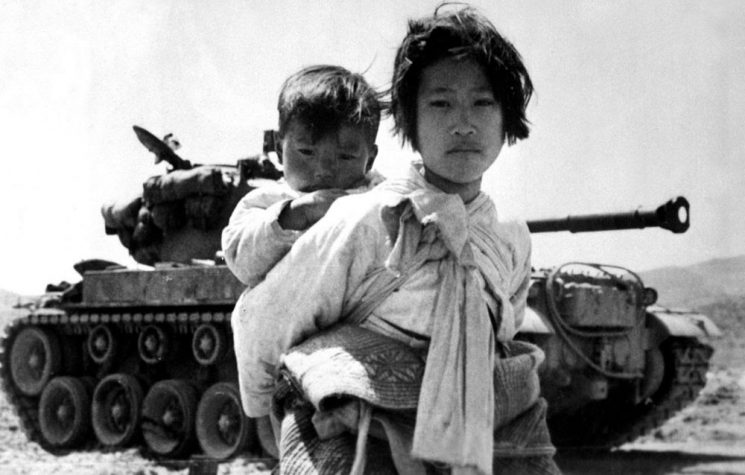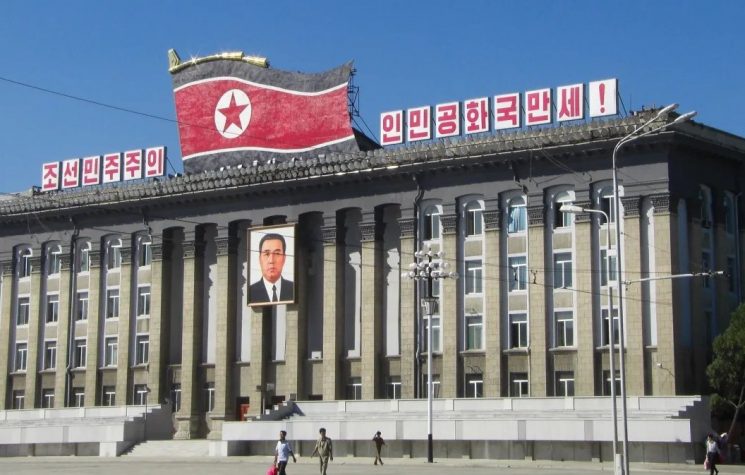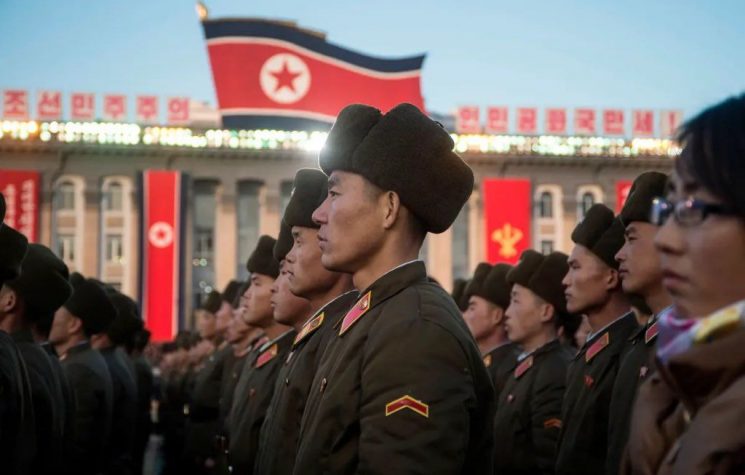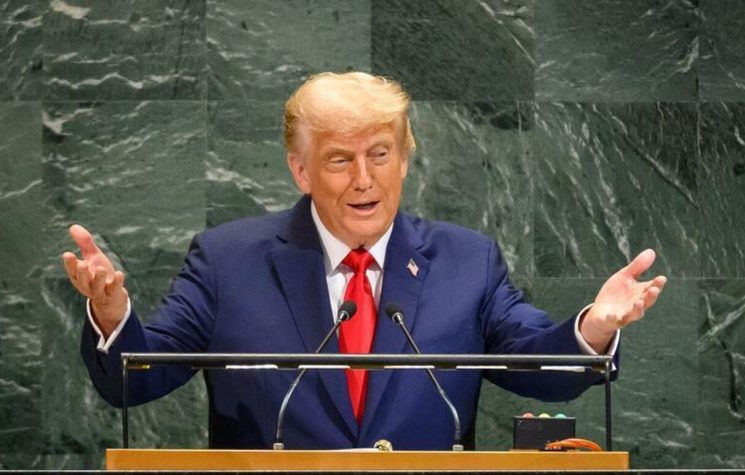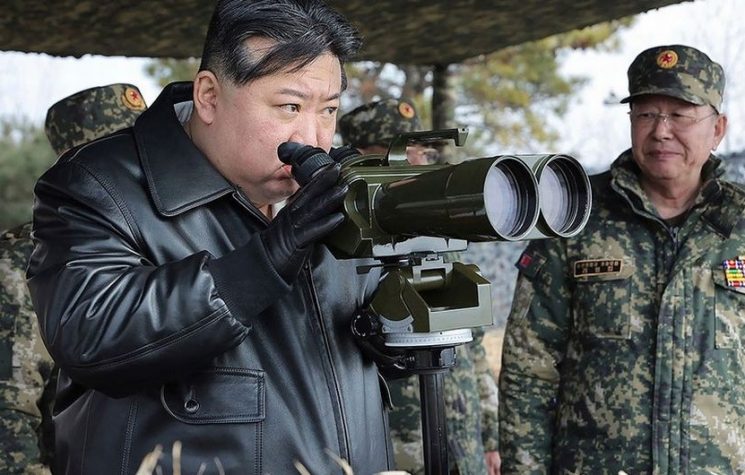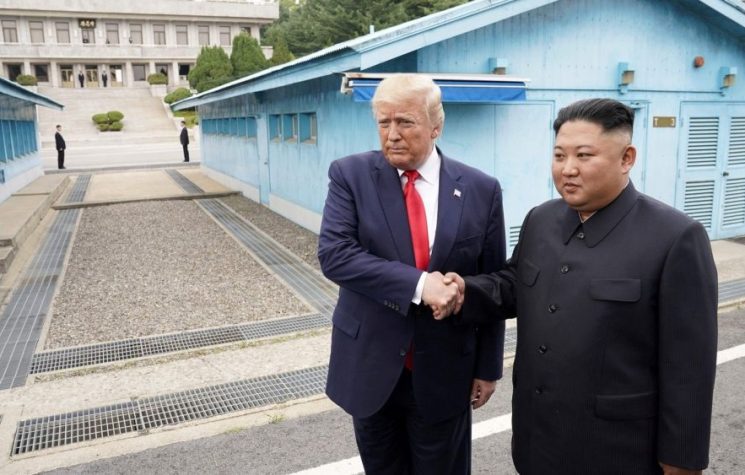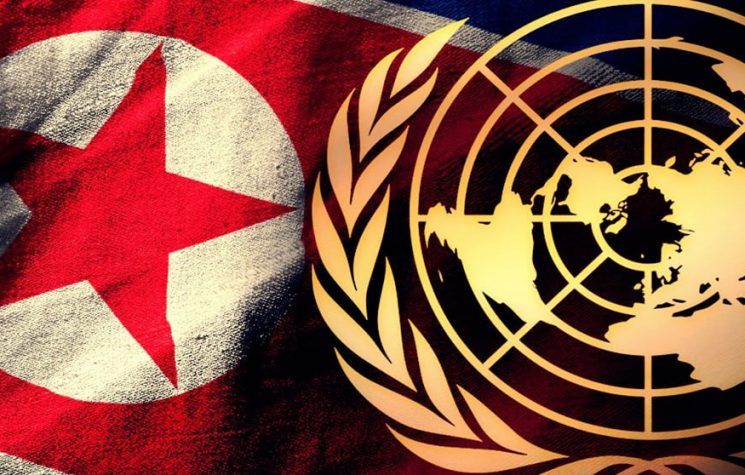Europe has opted, on the margins or at the expense of the democracies, to turn itself into a kind of Latin America 2.0, ready to receive U.S. trade surpluses, its expensive energy and its vulture funds.
❗️Join us on Telegram![]() , Twitter
, Twitter![]() , and VK
, and VK![]() .
.
Contact us: info@strategic-culture.su
The White House and the corporate media have been at pains to spread the news that the People’s Democratic Republic of Korea (aka North Korea) has now supplied Russia with missiles and launchers for a system similar to the short-range Iskander, which the Kremlin used to bomb Ukraine.
As always, in these things, Washington’s discourse suffers from an original fallacy: we can, others can’t; we do, but we can; we point, but don’t point at us; because we are the “indispensable nation”, the leaders of the “free world”. However, if we take a look at the statements made by John Kirby (assistant to the U.S. Secretary of State for Defense), we see that what really matters is left out, and what isn’t important – the supposed supply of arms from one country to another – is broadcast as if it were a mortal sin.
As with everything Washington says, it’s up to the interpreter to try to understand not what is literally expressed, but what is not. And what is omitted from Kirby’s words is what really matters.
We all know that the U.S. has spared no effort to isolate, blockade, embargo and attack the People’s Democratic Republic of Korea and its people. The integration of the DPRK under the Trade With the Enemy Act of 1917 dates back to 1950, the year the Korean War began. Since then, the DPRK has committed the sin of surviving the war and protecting its sovereignty. Having gone through absolutely unspeakable difficulties, provoked, exploited and aggravated by Washington, even so, and against everything and everyone (almost), the DPRK can not only be proud of having protected its sovereignty, in the face of hegemonic attack, but also survive long enough to witness the birth of the multipolar world and, consequently, the exploitation of the contradictions that the American strategy provides by trying to maintain its hegemony.
If the euphoric sanctions promoted against Russia, by the collective West, have opened the eyes of many Russians to the real intentions involved, it has also promoted a reality according to which this country has everything it takes to emerge stronger than before. For one thing, in 2023 it will grow more than the Eurozone.
If, for the DPRK, the attempt to isolate the Russian Federation ended up being an opportunity to escape a certain marginalization imposed by the hegemonic power, other countries also saw this break as a valuable opportunity: Iran, which took the opportunity to strengthen its armed forces, aerospace, logistical and even energy capabilities; Cuba, which now finds in Russia an economic partner that is more available than ever, in relation to the impositions it previously had to comply with in terms of the U.S. economic embargo on the Caribbean island; Africa, previously dependent on European neo-colonial “partnerships”, was able to find in Russia a complementary support to what China had already been providing, namely in the military area, the fight against terrorism (with Western sponsorship, by the way) and energy (Rosatom is now the world leader in the construction of nuclear power plants ).
Even for India, this attempt to “isolate” Russia has been a great prize, with the country acquiring 18% of all the crude exported by Russia at a lower cost, curiously enough, to resell a lot of it to Europe at a substantial profit, but not only that. While the Brahmos project had already produced hypersonic missiles such as the Brahmos-II, what really upset Uncle Sam was the recent military cooperation agreement between the two countries, signed in May 2023 and already underway , called the “Roadmap for Sustainable Defense Growth”. Like the U.S. – whose efforts to distance the two countries have been in vain – we can all smell what is at the root of such a thing these days, days marked by the direct confrontation between NATO and the Russian Federation on Ukrainian soil. Strategic military cooperation with Russia, today, means military, political and, in the case of a country the size of India, economic sovereignty. It means that, like Russia and China, India is and will be free to turn up its nose at the transmission of direct orders from Washington.
South Korea’s own rise to military-industrial power (2% of the share between 2018 and 2022, representing an increase of +74% compared to 2017-21) is bound to be a serious warning to Russia and China. Why not Japan? For the same reasons as Britain (which fell 35% in the same period). The fact that they are islands and that this poses various logistical problems, would have made it advisable to move resources to places with a land border and closer to the “enemy”, but not so close that the short distance jeopardizes the entire military-industrial production strategy.
The same reasoning may have been used in Europe, promoting growth in France and Italy (+44 and 45% in the same period) and disinvestment in Germany (-35%). The fact that Germany is closer to the “enemy” and that a safe logistical route is possible further away may have led to this trend. Let’s see if it continues (Scholz seems to want to reverse it). What we can’t do is dismiss the possible consequences of this reality: first, the greater or lesser investment in military-industrial complexes in countries on the U.S. security fringe takes into account, above all, the relationship with the enemies of the hegemonic power; second, Russia and China know how to draw the right lessons from these moves, in this case denouncing a clear intention to establish a production capacity that connects with possible military logistics routes in the event of a hot conflict. For the time being, these moves don’t seem to leave much doubt about the military-industrial and logistical structuring projects and what they are aimed at.
Nevertheless, these choices have been a real global lottery, with some gaining energy capacities, others arms production, others technological and, for the main author of this whole strategy, it means all those advantages together and the financial ones too.
But there is one corner of the world that persists in getting the worst out of this framework, which does not bode well for its people. No, I’m not talking about South Korea, which, among all its advantages, has learned to its cost that you can’t play games with a country like Russia. After all, Moscow had warned: “You don;t want modern weapons in the People’s Democratic Republic of Korea? Then don’t send weapons to Ukraine”. Now they are faced with a Russia-DPRK military cooperation agreement.
We are talking, of course, about Europe. Basically, it’s Europe, specifically the Eurozone and, even more so, the imperialist bloc that has given way to the USA: Britain, Italy, Germany and France, that is footing the bill for all this great global luck.
Europe is indeed facing a huge imbroglio. The choices that the people and political elites make in the coming months will be key to reversing or accelerating the current trend, marked first by inflation and then by economic stagnation and decline, which is already evident in the increase in insolvencies in the Eurozone, with the number of companies in difficulty and in liquidation hitting highs that we haven’t seen since 2015.
As many have already said, the industrial debacle in Germany is notorious, in France the prospects are not at all encouraging, with the loss of “colonies” like Niger, Mali or Burkina Faso, or in Meloni’s Italy, which so well represents what is today the neo-fascist and populist right that is drawing the depoliticized peoples of Europe into the abyss. It is a right-wing subservient to U.S. imperialism, committed to the dismemberment of national sovereignties in favor of the dictatorship of an unelected Brussels bureaucracy, incapable even of the nationalist tirades of the fascism of the 30s. To our misfortune, we can’t even say that “at least they’re not warmongers”. They are, just as much as the others. However, instead of doing so for more or less esoteric and triumphalist nationalist projects, they do so as good lieutenants, as soldiers at the service of their masters. No matter how much they proclaim “change”, there are only two main political groups in Europe: the party of submission (to the empire, to Brussels, to NATO, to the EU); and the party of liberation, in favor of sovereignty, friendship between peoples and the fight against imperialism.
The party of submission, the majority, the hegemon, plays its role so well that it has managed to embark Europe on a war in which it is now the main contributor. Contrary to what is often claimed, the U.S. is not the main contributor to the Ukrainian effort. They are certainly not the biggest contributors as a percentage of GDP, or even in absolute terms. The weight of this burden falls disastrously on Europe, especially Eastern and Baltic Europe, and in many different ways.
If, of the 73 billion handed over by the U.S., 44 billion is military “aid” under the “lend lease” program and will therefore be paid back by the Ukrainian people in the future, only 25 billion is financial “aid”. When it comes to the European Union, of the 90 billion it has already handed over, 81 billion is money. In other words, the EU is going into debt (perhaps to American loan sharks), and is no longer financing the development of its member states, in order to finance a country that is not a member and which has decided, on its own responsibility (we know that’s not the case at all, don’t we?) to arm itself and take on what it says is the “defense of the free world”.
But this figure, given by the European institutions, does not include the 22 billion from Germany, which also took the opportunity to sell 18 billion in arms, nor does it include the contribution of countries like Denmark, Poland (the largest supplier of armored vehicles), the Netherlands, Slovakia, Estonia, Lithuania, Finland or the Czech Republic. The greater the effort, the closer they are to the Russian Federation. That’s the golden rule.
And while giving up strategic advantages that any serious ruler, no matter how short-sighted, would never fail to see, Europe has opted, on the margins or at the expense of the democracies, to turn itself into a kind of Latin America 2.0, ready to receive U.S. trade surpluses, its expensive energy and its vulture funds. Basically, the glamorous political elite of the so-called “liberal democracy”, obeying dictates from a distant and closed bureaucracy, decided to: to give up the natural geographical and cultural link to the Asian and African continents, which would allow for the creation of a large international development zone; to get rid of a regular supply, in quantity and quality, of cheap energy, intermediate products and tailor-made, affordable substitutes; to say no to a huge market, made up of more than 160 million people (Russia + Belarus), with average purchasing power and eager for high value-added European products, which were soon exchanged for Chinese, Korean and Japanese ones.
You have to be absolutely stupid, coward or in total lack of leadership capacities to open hand of these advantages. Europe, in one fell swoop, gave up all of them. To hear an incompetent like Scholz blame Russia because gas is more expensive and, as a result, the German economy is on the rocks… For anyone who knows history, it’s despairing. These people celebrated “freedom from the Russian gas”! This closed, uneducated, politically null elite celebrated still celebrates the “liberation” of competitive energy advantages, market advantages and access to important production factors…. We could almost say that they are some kind of backward eco-capitalists who want to send us back to the caves, but in neoliberal mode.
But no! While the Baltic countries are making brutal efforts to finance NATO’s war, spending between 1.5 and 2% of their GDP in “support” of a war that makes them targets for the world’s biggest nuclear power (and how they celebrated it, these sickos!), it is on the other side of the Atlantic that we also find the profits from this disgrace.
Of the 20 countries that increased their military budgets the most in 2022, 10 are European, 11 if you count Ukraine, which spent 44 billion dollars on weapons that year. On the other side of the coin, we find the U.S., with a 40% share and the world’s leading arms supplier, up 14% since 2018. A simple graph shows where an important part of this global bill that the EU is paying is going: to the USA! The U.S. has 42% of the entire world population earning an annual income of more than 1 million dollars, while the EU only has 27%.
Considering that the American GDP in 1991 (date of the end of the USSR) was lower than the European one, and that in 2000 the EU had already been overtaken (here comes the disaster of the creation of the Eurozone)… The last time the EU was ahead was around 2008. Since then, American GDP has risen from 14.77 trillion to 25.44 trillion dollars, while the EU’s has risen from 16.3 to 16.75 trillion. What have we had since then?
The 2008 sub-prime crisis, with European sovereign debt crises (who doesn’t remember the reduction of countries in difficulty to wretched PIGS?) paying the American bill, through the dollarization imposed by the IMF and the hasty payments to Wall Street’s vulture funds; Covid-19, with Ursula von der Liar’s buying 5 doses of Pfizer, Moderna and Johnson for every European head (hundreds of millions of doses go to waste), dog or cat; the war with Russia, on Ukrainian soil, which was a checkmate to the Euro-Asian connection and the construction of a supercontinent.
In fact, from 2008 onwards, when Putin warned of NATO’s intentions in Ukraine at the NATO meeting in Bucharest, a whole final phase of the sinking of the European economy began, which so many, as unconsciously and other dementedly, celebrate.
That’s who pays for this huge international lottery. And the never-elected European Commission, as well as the party of submission, are still rejoicing at this result!
It’s the first time I’ve seen someone happy to pay for prizes won by others!

















